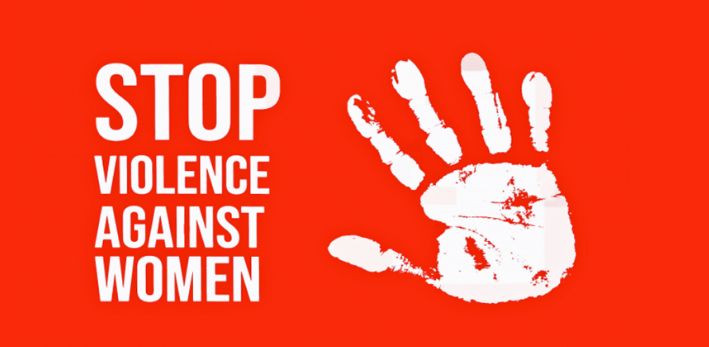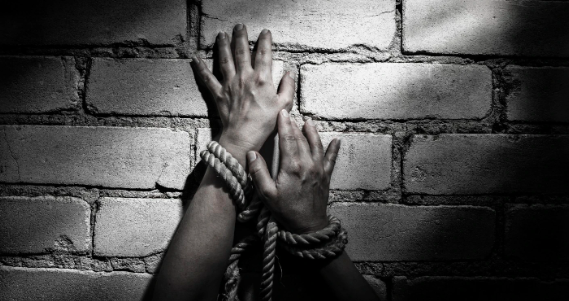|
Getting your Trinity Audio player ready...
|
Prevent human trafficking through education, awareness, and community support. Human trafficking, the exploitation of individuals for forced labour, sexual exploitation, or organ removal, casts a dark shadow on our world. It thrives on vulnerability, preying on individuals in desperate situations or lacking awareness. However, we are not powerless in the face of this injustice. By understanding the issue and taking action, we can contribute to a future free from human trafficking.

Here are ten key ways you can help prevent human trafficking and empower communities:
1. Educate Yourself
-
Stay informed
Regularly check trusted sources like the National Human Trafficking Hotline, the UN Office on Drugs and Crime, and anti-trafficking organizations for updates on trends, tactics, and vulnerable populations.
-
Go beyond awareness
Deepen your understanding by reading books, and articles, and watching documentaries from experts and survivors. Attend workshops or webinars hosted by anti-trafficking organizations.
2. Raise Awareness
-
Engage your community
Organize awareness campaigns at schools, workplaces, or community centres. Partner with local businesses to display informative posters or host educational talks.
-
Utilize social media
Share credible information and resources from anti-trafficking organizations on your platforms. Design creative infographics or videos to raise awareness and spark conversation.
3. Support Anti-Trafficking Organizations
-
Donate
Every contribution, big or small, helps organizations continue their vital work. Consider supporting organizations that align with your specific interests, like survivor support, advocacy, or research.
-
Volunteer your time and skills
Offer your expertise in areas like fundraising, event planning, communication, or translation. Even administrative or logistical support can make a significant impact.
4. Be a Responsible Consumer
-
Research
Choose brands committed to ethical sourcing and transparency in their supply chains. Look for certifications like Fair Trade or B Corp that demonstrate responsible business practices.
-
Engage with Businesses
Ask questions about their labour practices and sourcing policies. Contact them if you have concerns about potential exploitation within their supply chain.
5. Spot the Signs and Report
-
Educate Yourself about Common Indicators
Look for individuals who seem withdrawn, malnourished, or fearful, who have restricted movement or control over their documents, or who are accompanied by a controlling individual.
-
Report Your Suspicions
If you suspect human trafficking, contact the National Human Trafficking Hotline or your local law enforcement agency. Every report can help identify and dismantle trafficking operations.
Summary
Human trafficking, a horrifying reality, thrives on vulnerability. However, we can fight back. Educate yourself by seeking reliable information from trusted sources. Raise awareness through community events and social media engagement. Support anti-trafficking organizations with donations or volunteer your skills. Be a responsible consumer by choosing ethical brands and questioning business practices. Learn the signs of potential trafficking and report them to authorities. Empower communities through education and economic opportunities, especially for young people. Promote responsible online behaviour and educate others about online safety. Advocate for stronger legislation and hold officials accountable. Participate in advocacy efforts and campaigns. Encourage collaboration between stakeholders and amplify the voices of survivors. Every action counts. Together, we can build a world free from human trafficking and safeguard human dignity.
6. Empower Youth and Vulnerable Communities
-
Support Initiatives
Advocate for funding and programs that offer education, job training, and economic opportunities in vulnerable communities, reducing their susceptibility to exploitation.
-
Mentor and Empower Young People
To prevent human trafficking, offer guidance and support to young individuals, helping them develop critical thinking skills, build self-esteem, and make informed decisions about their future.
7. Promote Responsible Online Interactions
-
Practice Safe Online Habits
Use strong passwords and be wary of online solicitations or job offers that seem too good to be true.
-
Talk to Young People
Educate your children and young people about online safety, responsible social media use, and the dangers of online solicitation and exploitation.
8. Advocate for Legislative Efforts
-
Stay Informed
Research proposed legislation related to human trafficking and understand the potential impact of different policies.
-
Contact Your Elected Officials
Voice your support for strong anti-trafficking legislation and hold them accountable for implementing effective policies and allocating resources to combat trafficking.
9. Participate in Advocacy Efforts
-
Join or Support Advocacy Campaigns
Participate in marches, rallies, or online campaigns organized by anti-trafficking organizations to raise awareness and demand action.
-
Sign Petitions and Write Letters
Support initiatives working towards policy change, improved victim protection, and increased funding for anti-trafficking efforts.
10. Encourage Collaboration
-
Build Bridges
Promote collaboration between various stakeholders, including law enforcement, NGOs, businesses, and community leaders, to develop comprehensive and coordinated strategies to address trafficking.
-
Support Survivor-led Organizations
Amplify the voices and experiences of survivors, empowering them to advocate for change and contribute to prevention efforts from a lived experience perspective.
Conclusion
By embracing these actions and fostering collaboration, we can create a powerful force to prevent human trafficking. Remember, every individual, organization, and community has a role to play in building a world free from exploitation, where human dignity and freedom prevail. Together, we can make a difference.
FAQs on Preventing Human Trafficking:
1. What are some common signs of human trafficking?
Look for individuals who seem withdrawn, malnourished, or fearful, who have restricted movement or control over their documents, or who are accompanied by a controlling individual. These can be potential indicators, but it’s crucial to avoid making assumptions and report any suspicions to authorities.
2. How can I report suspected human trafficking?
In the United States, contact the National Human Trafficking Hotline at 1-888-373-7888 or text “HELP” to 233733. You can also contact your local law enforcement agency.
3. Where can I find reliable information about human trafficking?
The National Human Trafficking Hotline website (https://humantraffickinghotline.org/en), the United Nations Office on Drugs and Crime website (https://www.unodc.org/), and websites of reputable anti-trafficking organizations like Polaris (https://polarisproject.org/human-trafficking/) offer accurate and up-to-date information.




